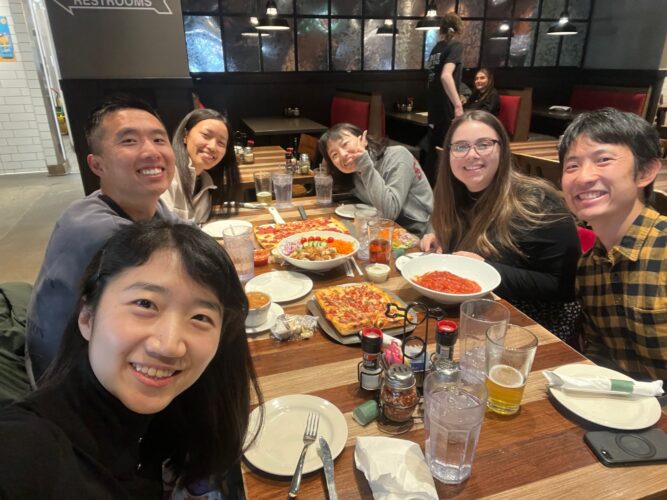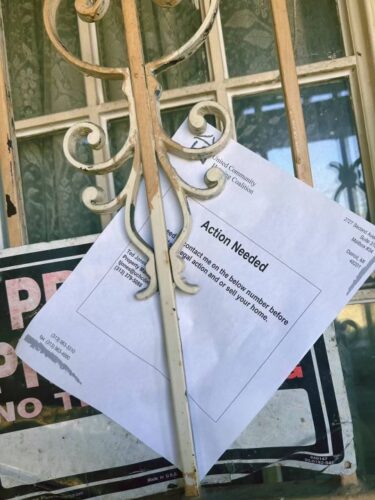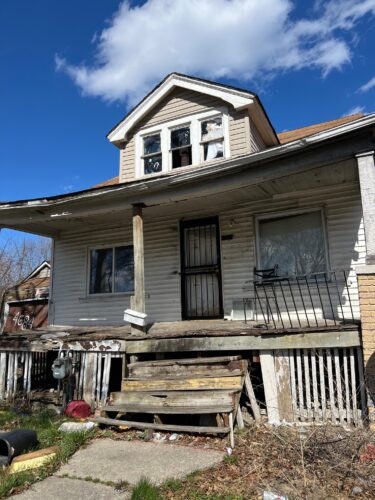Preventing Foreclosures in Detroit
Alternative Spring Break Gives Participating SLS Students a Week of Pro Bono Experience in a City Plagued by Foreclosures
The end of March is a dark time for Michigan homeowners who find themselves delinquent on their property taxes. If they have not paid all back taxes and penalties by March 31, they will face foreclosure come April 1.
Detroit-area non-profits like Michigan Legal Services (MLS) and the United Community Housing Coalition (UCHC), both of which provide housing-related services to Detroit’s low-income residents, are firing on all cylinders as the foreclosure deadline approaches.
It is the ideal time for eager law students to lend a hand, and to simply witness what it means to be a public interest lawyer working on urgent, high-stakes matters.

As part of the Alternative Spring Break program launched nine years ago through Stanford Law School’s Levin Center for Public Service and Public Interest Law, six law students recently traveled to Detroit to help MLS and UCHC pull homes out of foreclosure before the statutory deadline. The Detroit project was launched in 2020 after Michelle Wilde Anderson, the Larry Kramer professor of law, learned about the work of MLS and UCHC while she was in Detroit doing research for her book, The Fight to Save the Town.
“I was incredibly moved by the work of UCHC, MLS and other nonprofits working against the massive scale of the foreclosure crisis in Detroit,” says Anderson, who focuses her teaching and scholarship at SLS on poverty and inequality, local government law, housing, and environmental justice. “The level of dedication and creativity that these lawyers show as they try to keep people in their homes, in the face of a huge amount of bureaucracy and other challenges, is so inspiring.”
According to 2023 data from the U.S. Foreclosure Market Report, Detroit had the highest foreclosure rate (one in every 1,575 housing units) among the 223 metropolitan statistical areas with a population of at least 200,000.

Getting out of the ‘Stanford Bubble’
Brian Xu, JD ’26, jumped at the chance to immerse himself in the foreclosure work in Detroit. He served as the trip leader for the five other students on the project: Diana Hou, LLM ’24, Tenzin Wangmo, JD ’26, Natalia Zorilla, JD ’26, Samuel Mori, JD ’26, and Tiantian Li, an exchange student from the Paris Institute of Political Studies.
“In law school, it’s very easy to get lost in the doctrine, in reading cases every day, and to lose the sense of why we come to law school in the first place,” says Xu, a Los Angeles native who anticipates pursuing a public interest career. “We got to experience what it was like to be around a group of lawyers who are absolutely devoted to using the law to help others. I wanted to immerse myself in that and to help, even in a small way, these people who share similar values to me.”
He and the other students helped distribute time-sensitive information to clients, assisted with research, and compiled data and other information to help MLS and UCHC attorneys in their work on behalf of tax-delinquent homeowners. They also had the chance to observe UCHC attorneys in action in housing court and they spent an evening at the home of a Detroit-area SLS alum, Erica Peresman, JD ’84, a voting rights advocate.
Xu says he was fascinated by the creative measures the UCHC undertakes in order to help their clients. “One of their programs was called Make it Home, which involves UCHC purchasing foreclosed homes at auction on behalf of the current tenants, and then having the tenants repay them through a no-interest loan.”
LLM student and China native Hou says her time in Detroit was an informative counterpoint to the “Stanford bubble.”

“I had read a lot about Detroit and the housing crisis there, but nothing can compare to seeing it first hand,” she says. “It was very surprising to see the terrible condition of some of these homes. I was shocked to learn about the issue of over-assessment, where people can end up paying property tax that’s even higher than the property’s current value.”
A week goes by quickly, but both Xu and Hou say they felt they contributed in a meaningful way while in Detroit.
“It was illuminating,” Xu says, “to see what is possible in terms of providing legal services to people who desperately need them. It expanded my horizons in terms of what lawyers can do beyond helping clients with legal documents or representing them in court. It is often more about finding other solutions that combine law, policy, and economics in a way that we don’t often think about while we are in class.”
Serving Communities in Need Across the Country
While Anderson laid the groundwork for the project in 2020, the trip could not run until last year due to Covid restrictions. “It is such a great feeling to be able to put our students on the ground in Detroit for the second consecutive year,” says Mike Winn, SLS lecturer and director of pro bono and externship programs. “Alternative Spring Break offers a special opportunity to meet communities quite literally where they are, understand their unique legal barriers to safe and secure lives, and then, in partnership with local attorneys, help those communities overcome those barriers. The trip to Detroit provides students with a particularly tangible opportunity to assist under-served populations facing an urgent deadline.”
This year, 49 SLS students participated in six Alternative Spring Break projects. In addition to the Detroit initiative, they also prepared wills in Northern California under the supervision of Yurok Tribal Court attorneys; provided criminal and civil assistance to clients through Arch City Defenders in St. Louis; assisted with criminal records clearances in San Jose with the Record Clearance Project; supported the under-resourced New Orleans public defender office in representing indigent criminal defendants; and assisted with driver’s license recovery efforts alongside Rio Grande Legal Aid in Laredo, Texas. Students were able to earn up to 40 pro bono hours for their week of work.
